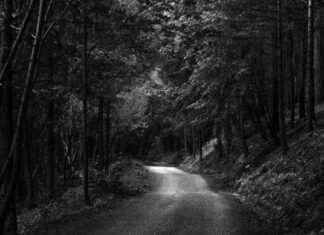The Arab World Institute (IMA) launched a particularly rich range of podcasts on Friday October 20. Ambition? “Widen access to the worlds of thought and creation in the Arab worlds”, according to Mathieu Gousse, the head of meetings, editions and now podcasts, therefore, of the Parisian cultural institute.
For this former editor of the French Institute of Oriental Archeology based in Cairo, it is a matter of extending his experience at the IMA by making conferences and meetings audible (they will be editorialized and translated – therefore listenable – in Arabic) and to produce either at the IMA (with its own studio) or from countries in the Arab world podcasts focusing in particular on philosophy, art history, music, but also series documentaries.
For their first series, “Un bled à soi”, Mathieu Gousse and his collaborator Zoubida Debbagh relied on the know-how of Alexandre Plank, co-founder of the Making Waves association, and entrusted the production to Fabienne Laumonier and Mehdi Ahoudig. One in Bobigny, the other in Marseille, they got women and men of all generations talking, asking them what this word “bled” – which means “country” in Arabic and took on the meaning, clearly pejorative, of “hole”, according to Le Robert – evoked them.
Synonymous with goodbye and exile
It’s moving to hear them talk about their story in turn. A story that is hidden in this word synonymous with goodbye and exile. A word that carries and brings confusion (episode 3). “The country is here, in Seine-Saint-Denis, if I’m honest,” says one. And when I go there, I’m crazy, if I’m honest. We are always immigrants – here, there. » Another: “The countryside is never where you are. It’s hard to live with, really. » For this woman, however, it is impossible to think “town” when she talks about the city of Fez, in Morocco: “It’s a great imperial city, a cultural capital, it’s not a town. When I talk about town today, I’m talking about my native town, in Franche-Comté. »
There are sometimes disillusionments when the countryside has been elevated to the level of fantasy. So of this woman who, at 26 years old, and when she had finally decided to go see it, dared to say: “It was a busy trip. Not bright. And I understood why my mother wanted to leave. » In the last episode, many will say: “The country is the land of the ancestors. This is where your dead are buried. »
“A town of one’s own” gives voice to singular stories which also tell a collective story: that, still largely raw, of colonization. By choosing not to name anyone – the words follow one another, intersect, echo and complement each other – it is a chorus of “wimps” that Fabienne Laumonier and Mehdi Ahoudig ended up forming around the music of the singer and composer Bachar Mar-Khalifé and some compositions by Samuel Hirsch. The latter also carried out the mixing in his sound creation studio, Gong, where the wonderful podcast “Cornebidouille”, for children (co-produced by Sabine Zovighian), and “A la trace”, in which Léa Veinstein returned, were notably mixed. on the history of works looted during the Nazi period.






